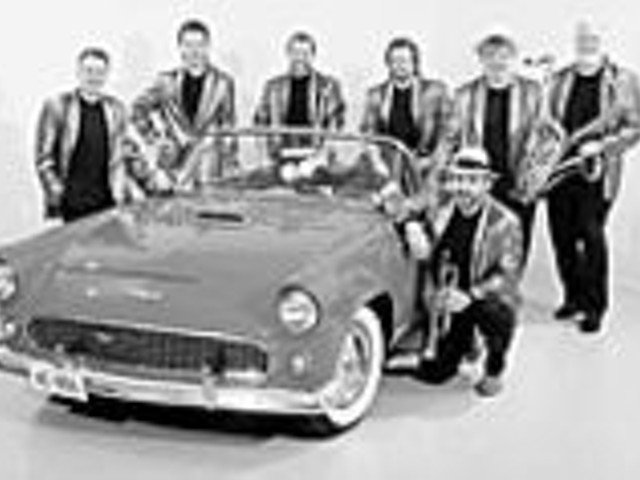Those who attend this week's Muny revival will still be thrilled by the father of musicals. The moment the overture begins, the show sets itself apart from the norm. The very first chord (portentous and heavy, like something from Wagner) establishes the motif for the impervious Big Muddy, upon which so much of the story is set. Then the brassy clarion call of a coronet rises from the gloom, and jazzy rhythms begin to percolate. We're still in the overture, not a word has been spoken, but already the show's dynamic -- the clash of pastoral river life with the jarring dissonance on shore -- is firmly established.
As the plot (a tapestry of Americana during the decades between the dormant 1880s and the Jazz-Age 1920s) unfolds, we are treated to a cornucopia of memorable songs, each one a textbook example of musical construction. Consider, for instance, this dilemma: How do you introduce a love song before the characters have fallen in love? Oscar Hammerstein II, Show Boat's young lyricist, solved that problem in the opening scene by having flashy riverboat gambler Gaylord Ravenal and innocent Magnolia Hawks, the daughter of a showboat captain, meet and then imagine how they might react were they to fall in love at first sight. "Make Believe" is such an effective hypothetical that Hammerstein used the same device two decades later in Carousel with "If I Loved You."
Alas, it doesn't enhance this "Make Believe" to have Ravenal (Lewis Cleale) appear in a cranberry suit that makes him resemble a walking blood clot. But once the soon-to-be lovers part (ostensibly so that Cleale can change out of that foolish garb), Joe, a black deckhand on the Cotton Blossom, stands alone onstage and sings the timeless "Ol' Man River." As Joe, Michel Bell interprets Jerome Kern's song with awesome resonance. Bell can take a word like "must" (as in "he mus' know sumpin'") and elongate it into a two-syllable word whose oblique originality haunts the mind.
On opening night, Bell's "Ol' Man River" brought the audience surging to its feet. This was not one of those phony, obligatory standing ovations; this was theater alchemy. In 90-degree heat, Bell sent chills through the audience, whose response was as much catharsis as tribute.
And we're still in scene one. A newcomer to the musical might wonder, where do we go from here? The answer is: We go to "Can't Help Lovin' Dat Man" and "You Are Love" (arguably the most soaring duet in all musical theater) and the heartbreaking "Bill" (sung with hold-your-breath stillness by Debbie de Coudreaux). There's simply no other show like Show Boat.
Yet for too long there has not been a definitive version. Just as the Mississippi River has changed its course over the decades, so has this musical changed its form. Songs have carelessly gone in and come out with discomforting regularity. But in 1994, director Harold Prince re-examined and deepened the material. He was assisted by Susan Stroman, whose choreography and movement infuse the evening with specificity and fluidity. Their version is being mounted here.
Among the large cast, alumni of the Prince staging tend to fare better than do the newcomers. As Queenie, Joe's wife, Jo Ann Hawkins White provides amusing counterpoint to Bell and sings a compelling rendition of the evocative "Mis'ry's Comin' Aroun'." As an ambitious song-and-dance team, Tari Kelly and Eddie Korbich bring charm and élan to two supporting characters who often slow the action to a crawl. Korbich's Act 2 pogo-stick-like entrance into the Trocadero restaurant is a wily example of an actor refusing to be dominated by his surroundings. As the vivacious Kim Ravenal, Laura Schutter glows like an incandescent light bulb. Though she doesn't appear until late in Act 2, Schutter provides the show with a charge of energy.
When Show Boat premiered on Broadway in 1927, it changed the direction of the American musical. But in this what-have-you-done-for-me-lately world, that's not reason enough to see it today. So forget the past. At age 76, Show Boat is still a wonder, able to triumph over painted drops that are tacky at worst and casting that is erratic at best. Glorious music, a story as enduring as the mighty Mississippi itself and at least one performance that cuts to the marrow make this return visit a river journey well worth taking.





